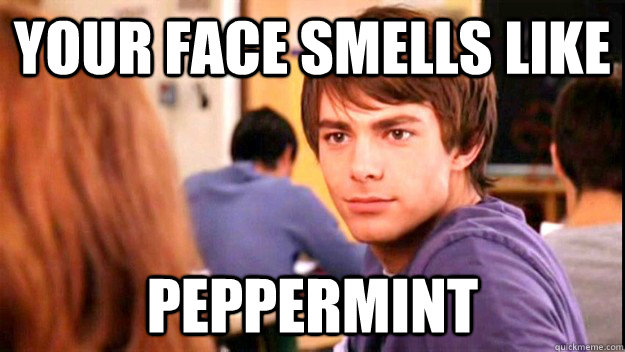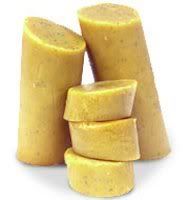Liz Weir, a beauty therapist, and Mark Constantine, a trichologist were fated to meet in a beauty salon in 1977. The two quickly befriended each other and when their five-year contracts were to be renewed, Constantine wished to embark on his own cosmetic related adventure. Liz reluctantly joined him and together they created the "Herbal Hair and Beauty Clinic." Liz stated that despite their products being innovative and authentic, they for some reason didn't have enough commercial value in order to make a profit. In fact, Liz even joked about them almost starving because of the lack of customers. Little did hungry Liz and Mark know, that they'd eventually become the worldwide success known as Lush today.
 |
| Aaron Samuels is also a fan of Lush. |
 The dynamic duo of Constantine and Weir used the millions they made from the team up with The Body Shop to create a new type of cosmetic experience called Cosmetics To Go (CTG) in 1987. The CTG was a new way of consumers to purchase cosmetics. Instead of having to walk to the store to purchase cosmetics (when they probably don't even want to leave their houses if they ran out of cosmetics), the customers would order the cosmetics from a catalogue. The creators of Lush recall it as being "a pleasure, but also very complicated;" and it was complicated, indeed. At first, it seemed that success was inevitable seeing how when their first catalogue was distributed, the products were sold out after two days. The response was so astounding, Weir and Constantine had to hire staff to work through the mail orders overnight. The overwhelming reaction to CTG caused the switchboard for taking telephone orders crashed because there were too many callers. Then, as if Constantine and Weir hadn't suffered enough, the computer system crashed. Many of their customers had to wait weeks till they received their orders.
The dynamic duo of Constantine and Weir used the millions they made from the team up with The Body Shop to create a new type of cosmetic experience called Cosmetics To Go (CTG) in 1987. The CTG was a new way of consumers to purchase cosmetics. Instead of having to walk to the store to purchase cosmetics (when they probably don't even want to leave their houses if they ran out of cosmetics), the customers would order the cosmetics from a catalogue. The creators of Lush recall it as being "a pleasure, but also very complicated;" and it was complicated, indeed. At first, it seemed that success was inevitable seeing how when their first catalogue was distributed, the products were sold out after two days. The response was so astounding, Weir and Constantine had to hire staff to work through the mail orders overnight. The overwhelming reaction to CTG caused the switchboard for taking telephone orders crashed because there were too many callers. Then, as if Constantine and Weir hadn't suffered enough, the computer system crashed. Many of their customers had to wait weeks till they received their orders.The next catalogue came out around Christmas, however the disaster before discouraged many of the former customers as they thought they wouldn't get their gifts in time for Christmas. CTG ended up not getting enough orders and CTG was put into administration since the little company showed potential. The creators of the CTG tried to raise money for a management buy out, but the company was sold to Jeff Brown. He not only took the valuable formulas with him, but also the brand name! The team was forced to find other jobs in order to keep their store and factory.
 |
| Banana Moon (One of the new quirky soaps.) |
Soon enough, it was time for another try. The team finally reopened their shop in Poole, England. Initially, the team was apprehensive due to the large amount of job loss in the area. In spite of the job loss, customers were drawn to the store because the team had been extremely genial to the people of Poole in the past. According to the Lush website, "many people came in, gave them a hug, and said 'Here is £10 What do you want me to buy?/" Originally, they team dubbed their company "Cosmetic House." Later, dissatisfied with their title, they created a competition for customers to re-title the company. An Elizabeth Bennet came up with "Lush." The creators believed that the name was perfect seeing as "lush" is defined green, verdant, and drunken women.
 |
| My Fair Lady Gift. |
In 2007, Lush began to talk more about it's ethos and had since made strides not only in the cosmetic industry, but also in the animal and environmentally conscious worlds. It has since been Lush's mission statement to create effective bath and skin products from organic fruit and vegetables, essential oils, and only the safest synthetics. They also strive to maintain a strong moral stance against animal testing, unethical sourcing, and unethical buying. Lastly, it is their hope to inspire other companies who are consumed with money and greed to follow their environmentally conscious footsteps.
No comments:
Post a Comment